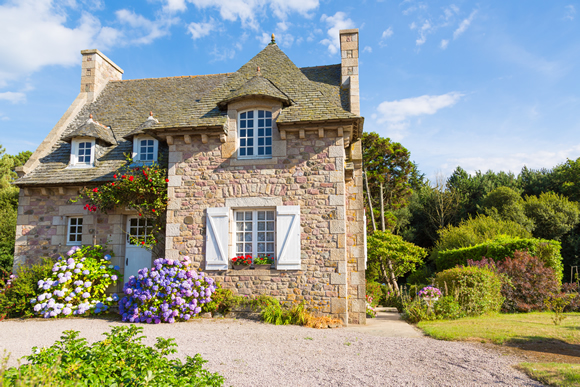Post-Lockdown Exodus Sees City Dwellers Flee for the Country in Record Numbers

It was not long ago that small city centre flats with the bare minimum space were the most desirable properties for movers in the UK. Given the choice, it seemed most would have liked to relocate to major employment hotspots like London, being perfectly happy to sacrifice space at home for the convenience of urban living.
Or at least, that is how the situation looked before lockdown.
According to property portal Rightmove, homebuyers in record numbers are setting their sights on quieter and more spacious homes far from crowded towns and cities. In fact, the number of searches being carried out for properties in rural locations with smaller populations has more than doubled since lockdown was enforced.
Primarily, the desire for larger homes in quieter locations is being fuelled by homework becoming the new norm for much of the population. Coupled with the fact that more people are spending more time on their own property (indoors or out) than ever before, the appeal of larger homes in quieter corners of the country is understandable.
Outdoor space is a key selling point
Seaside towns and villages in particular have spiked in popularity among homebuyers, reports Rightmove. Irrespective of whether such a move could potentially add significant mileage to a worker’s twice-weekly commute, it is apparently a small price to pay for what is on offer.
Rightmove’s report made it clear that outdoor space has become a key selling point for homes on the market in 2020. The availability and quality of a property’s gardens and outdoor living spaces are now taking precedence over previous priorities.
Whereas it was once kitchens, bathrooms, and convenient locations that sold homes, it is now manicured gardens, patios, and tranquil settings.
Are prices set to fall in 2021?
Nothing is certain for the time being, given the potential threat posed by COVID-19 and Brexit; however, some real estate watchers believe that 2021 will bring an end to record-breaking property price increases.
“There is increasing concern that the combination of significant losses over the coming months allied to the scaling back of policy initiatives in early 2021 will have an adverse impact on transaction levels,” commented Simon Robinson, chief economist at The Royal Institution of Chartered Surveyors, though this does not necessarily mean that next year’s slowdown will reverse the positive movement of the past couple of months entirely.
According to Halifax, average house prices in the UK saw their biggest monthly growth in September since 2016, a huge 7.3% spike. This took the average UK property price to a new high of £249,870.
